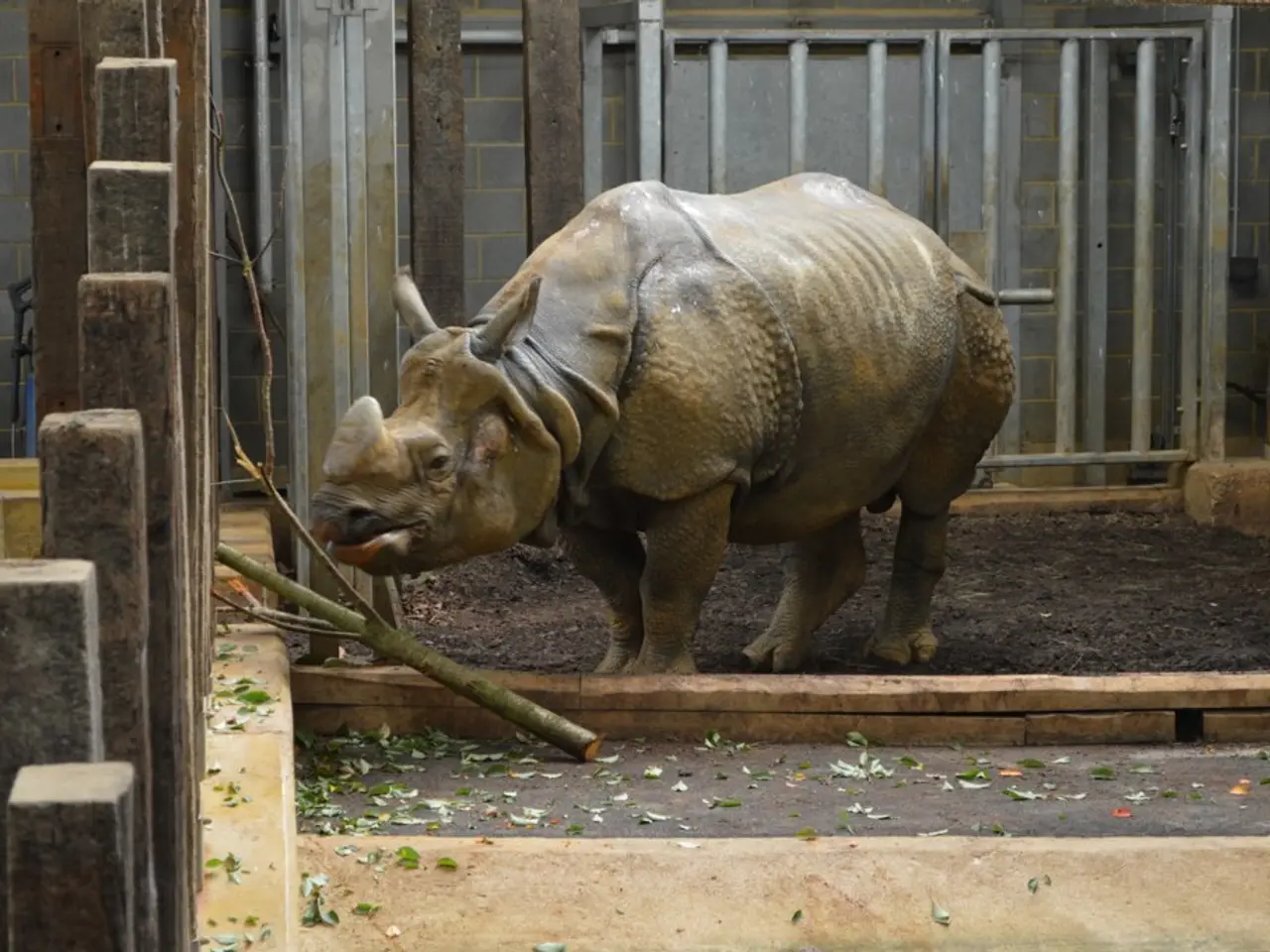Scientists in South Africa Radioactively Enhance Rhino Horns as Anti-Poaching Measure
In an effort to combat the illegal rhino horn trade, the University of the Witwatersrand in South Africa has launched the Rhisotope Project. This groundbreaking initiative, a collaboration between the university, nuclear energy officials, and conservationists, aims to protect rhinos by making their horns detectable through radiation scanning equipment.
Last year, about 20 rhinos at a sanctuary were injected with isotopes as part of trials, paving the way for the launch of the Rhisotope Project on July 31. The project initially treated five to twenty rhinos in the UNESCO-designated Waterberg Biosphere Reserve, a critical ecological area in Limpopo Province.
The radioactive isotopes used in the Rhisotope Project are harmless to rhinos, as confirmed through veterinary inspections and blood tests during trials. The radiation tagging is non-invasive and allows horns to be detected even inside large cargo containers, improving the ability to intercept illegal horn shipments globally.
The goal of the Rhisotope Project is to mass-inject the declining rhino population with radioactive isotopes. The isotopes can be detected by customs agents using radiation detectors, making it possible to identify trafficked rhino horns and thereby disrupt the illegal horn trade without harming the animals.
James Larkin, the chief scientific officer at the Rhisotope Project, stated that the process is completely safe for the animal and effective in making the horn detectable through international customs nuclear security systems.
The University of the Witwatersrand has urged private wildlife park owners and national conservation authorities to have their rhinos injected with radioactive isotopes as part of the Rhisotope Project. This technique leverages existing radiation portal monitors (RPMs), which are widely deployed for nuclear security, adding an effective tool to combat rhino poaching driven by demand in traditional medicines and status symbols.
With the launch of the Rhisotope Project, South Africa takes a significant step towards protecting its iconic rhino population and addressing the global issue of rhino horn trafficking. The project's long-term goal is to expand this treatment across South Africa’s rhino population, helping secure the future of these majestic animals.
Science and health-and-wellness are intertwined in the Rhisotope Project, a South African initiative aiming to ensure the safety and well-being of rhinos by making their horns detectable through radiation scanning equipment. By incorporating harmless radioactive isotopes in the horns, this project seeks to mass-inject the declining rhino population, thereby preventing poaching and safeguarding these majestic creatures from extinction.




